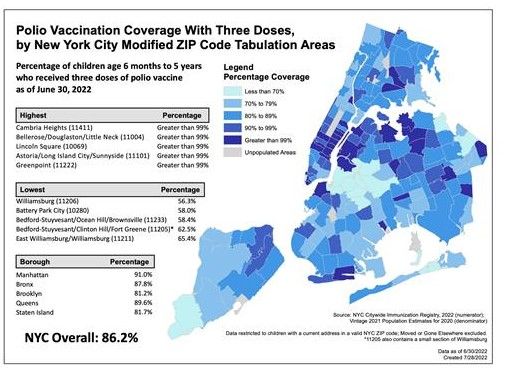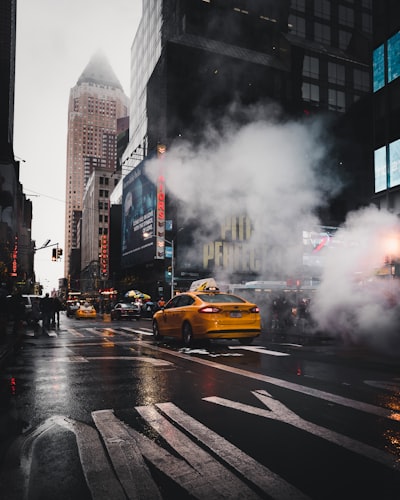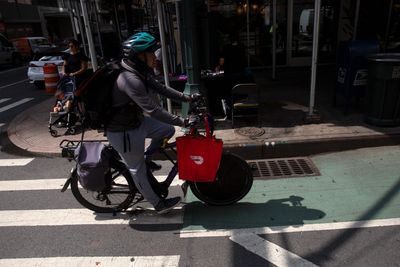Sewage samples in New York City provided to the US Centers for Disease Control and Prevention identified presence of polioviruses indicating a risk of community transmission
The New York State Department of Health (NYSDOH) and the New York City Department of Health and Mental Hygiene (NYCDOHMH) today updated New Yorkers on the detection of poliovirus (the virus that causes paralytic polio) in sewage, suggesting likely local circulation of the virus.
Polio can lead to permanent paralysis of the arms and legs and even death in some cases.
State Health Commissioner Dr. Mary T. Bassett
“For every one case of paralytic polio identified, hundreds more may be undetected,”
“The detection of poliovirus in wastewater samples in New York City is alarming, but not surprising. Already, the State Health Department – working with local and federal partners – is responding urgently, continuing case investigation and aggressively assessing spread. The best way to keep adults and children polio-free is through safe and effective immunization – New Yorkers’ greatest protection against the worst outcomes of polio, including permanent paralysis and even death.”
Health Commissioner Dr. Ashwin Vasan
“The risk to New Yorkers is real but the defense is so simple – get vaccinated against polio,”
“With polio circulating in our communities there is simply nothing more essential than vaccinating our children to protect them from this virus, and if you’re an unvaccinated or incompletely vaccinated adult, please choose now to get the vaccine. Polio is entirely preventable and its reappearance should be a call to action for all of us.”
Most adults do not need polio vaccine because they were already vaccinated as children. New Yorkers who are not up-to-date with vaccination should speak to their health care provider or their child’s provider to schedule an appointment for vaccination against polio and other dangerous diseases, such as measles, mumps, whooping cough, chickenpox and COVID-19.
Polio outbreaks are happening globally. Children and adults should be up-to-date with polio and other routine immunizations before travelling. Adults who received polio vaccine as children should receive a one-time lifetime booster if traveling to an area where there is a poliovirus transmission.

New Yorkers can learn more about polio and polio immunization.
Polio vaccination rates by county and more information about wastewater surveillance are available.




